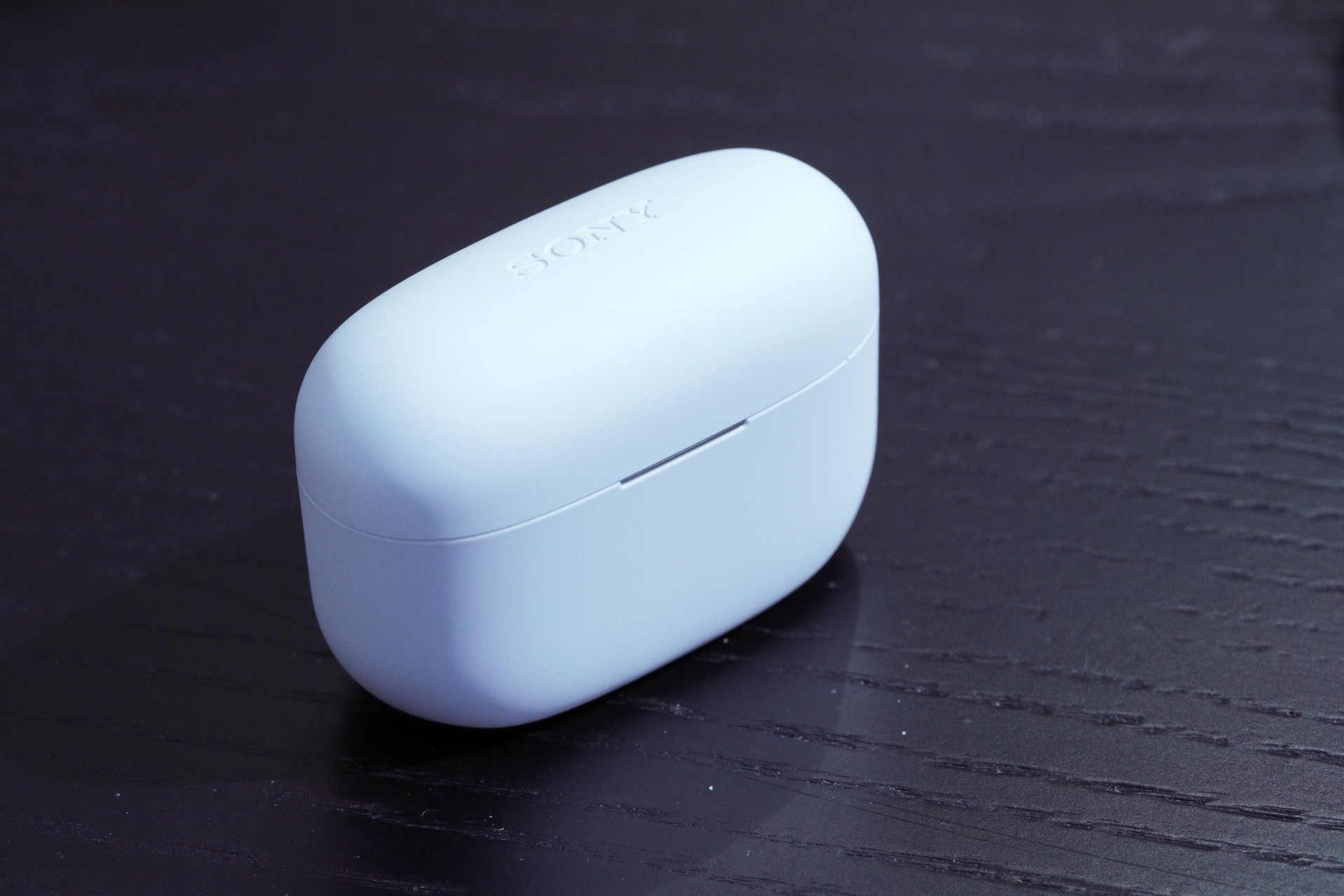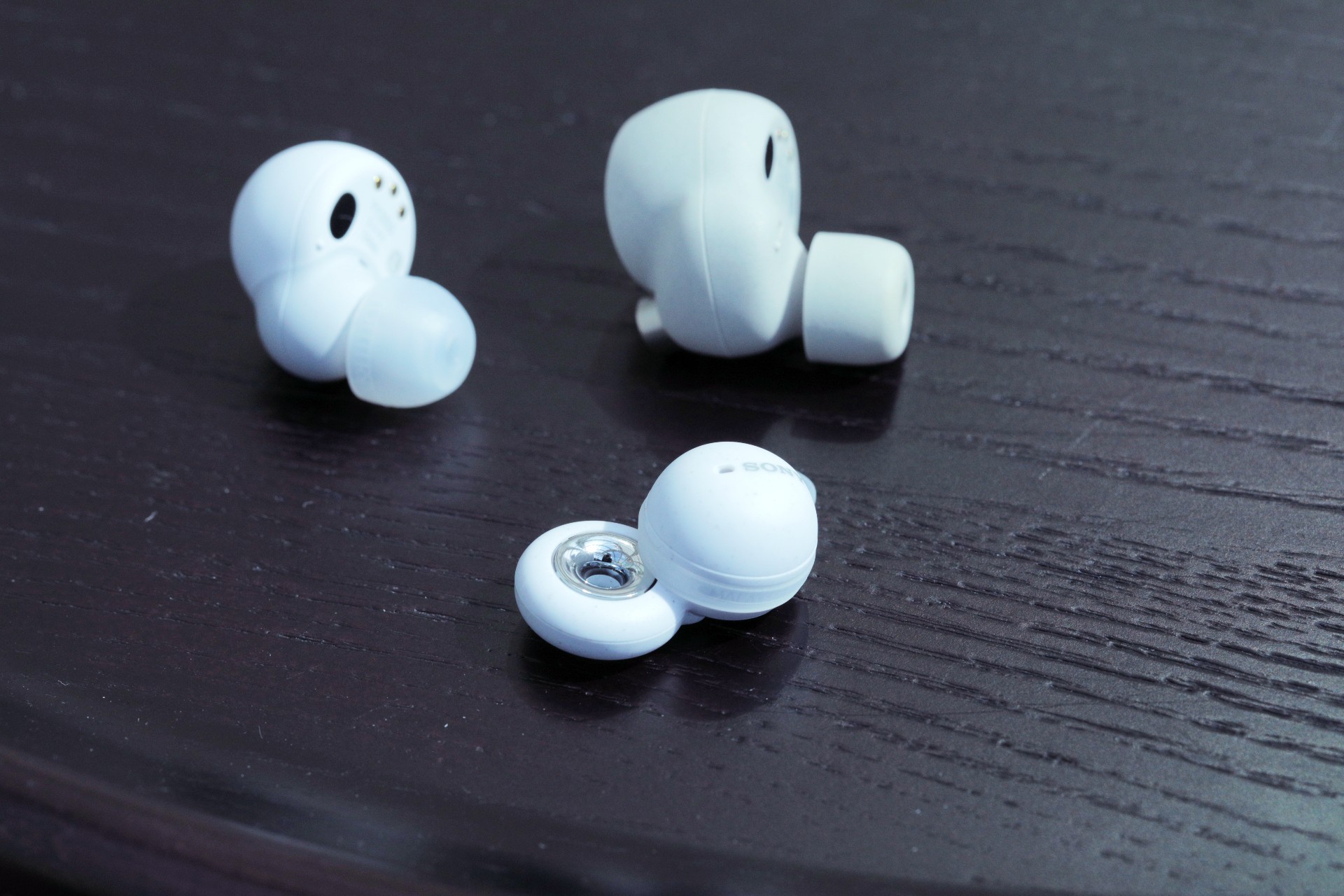Surprise! While we were all (understandably) preoccupied with the latest addition to Sony’s excellent over-ear headphones, the LinkBuds S managed to mostly fly under the radar. This likely happened for a number of reasons, not the least of which is the company’s confusing naming scheme. It’s not clear where the new earbuds slot in at first blush.
The short answer is: smack in the middle of Sony’s growing lineup of fully wireless buds. The standard LinkBuds sit at the low end at (a still not cheap) $180. At the high end are the great, but pricey WF1000XM4, which retail for exactly $100 more. The breakdown, this far, is fairly straightforward. The M4 are a truly premium set of earbuds at a truly premium price. The LinkBuds, meanwhile, have a giant hole in the center that’s designed to improve situational awareness.
The ”S” apparently stands for “sound.” That doesn’t really clarify things. Sure, the LinkBuds S sound better than their namesakes with the giant hole in the center, but ultimately less good (owing mostly to the inclusion of smaller drivers) than the M4s. For clarity’s sake, the company offers up the following tagline, “The world‘s smallest and lightest, noise canceling, Hi-Res Truly wireless headphones.” Really rolls off the tongue, right?
Here’s how I would describe them: a really great sounding pair of everyday earbuds. Given the company’s existing line, I’m not convinced the LinkBuds S need to exist. But having worn them as a daily driver the last couple of weeks, I’m glad they do. As someone who tests a lot of earbuds over the course of a year, the LinkBuds S are among the best sounding and most comfortable I’ve had in my ears. It’s an impressive combo.
Image Credits: Brian Heater
At $200, they fall closer to the LinkBuds than M4s. They’re not cheap, by most measures, but at least they compare favorably to the AirPods Pro’s $250 MSRP. It’s the comfort, however, that really won me over. I had (and still have) lots of nice things to say about the M4s. And while their footprint was a big improvement over their predecessor, I’ve always considered them more around-the-house earbuds. When it comes to listening to music in the comfort of your own home, they’re tough to beat.
If you’re an active person looking for something “on the go,” they’re harder to recommend. They wouldn’t, for example, be the first pair of buds I’d grab on my way out the door. And they’re not in the top ten when it comes to my morning runs. They’re just too bulky. They’re big, kind of heavy and they jut out of the ear. The LinkBuds S, on the other hand, are a great walking companion.
I recognize that comfort is both highly subjective and dependent on the idiosyncrasies of your own ear. For my money, though, the LinkBuds S are an ideal size, coupled with a soft silicone tip that sits comfortably in the ear for long stretches. I would still hesitate to recommend them specifically for workouts, however. The latest Beats fit the bill much better with a built-in wing to keep them in place. The touch panels on the side can also be tough to navigate in that setting, particularly while sweating.
The sound quality is a step down from the M4s for reasons highlighted above. Even so, they’re a really excellent sounding pair of buds for music and podcasts. Honestly, the main reasons they’ve left my ears since picking the pair up were to (1) rest Sony’s new over-ear headphones and (2) sleep.

Image Credits: Brian Heater
The “always-on” approach is supposedly at the epicenter of Sony’s attempt to address primarily a Gen Z audience (“buds built for the next generation,” per the press material). I’m not really sold on how these buds might be better suited for the TikTok generation, but the company points to features like “Auto Play,” which starts playing music based on different activities. Using the Sony Headphones app, you can fire up music automatically based on various features like putting the LinkBuds in, ending a call or going for a walk.
Currently these features only work with a pair of music services: Spotify (of course) and Endel. I wasn’t familiar with the latter, but it’s been an interesting experience, thus far. It’s less a standard streaming service like Spotify and Apple Music, and more an algorithmically generated mood enhancer. You can chose different scenarios like “Relax” or “Move.” I’ve been playing around with it for meditation and sleep, as well. I’m listening to “Focus” as I’m attempting to finish this review late on a Friday afternoon.

Image Credits: Brian Heater
I prefer more manual control over my music listening than Auto Play provides. So who knows, maybe it is a generational thing.
The LinkBuds’ noise canceling is quite good as well, if, again, a step down from the M4s. A quick tap on the right bud toggles between that and ambient mode. I’ve been taking calls on the new buds, as well, and the voice clarity has gotten high marks from people on the other end. The little grille on the outside is a mesh windscreen. It does a decent job cutting out bad wind noise though some will invariably still get through.

Image Credits: Brian Heater
Battery life is rated at six hours with ANC on, nine without. The case, meanwhile, will bump things up to 20. The charging case is a bit narrower than the M4s (which are rated at eight hours and 24 with the case), as you’d expect. It does, however, drop wireless charging from the equations. Also, it’s a small thing, but I do quite like the textured feel Sony has given the buds this time out.
The M4s price always precluded them from being a mainstream product, and the arrival of the LinkBuds S really drives that notion home. For most people in most cases, these smaller, more comfortable and cheaper buds fit the bill.

